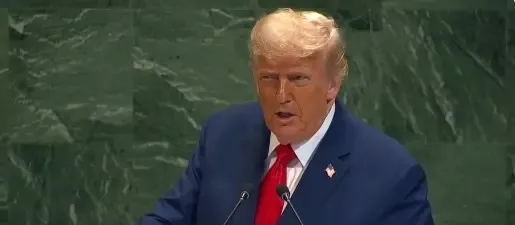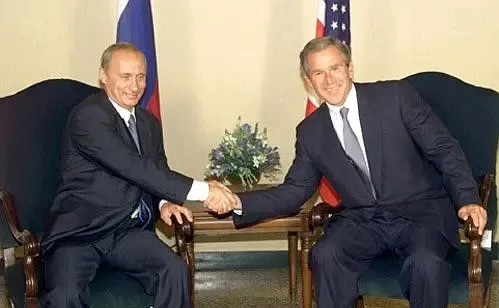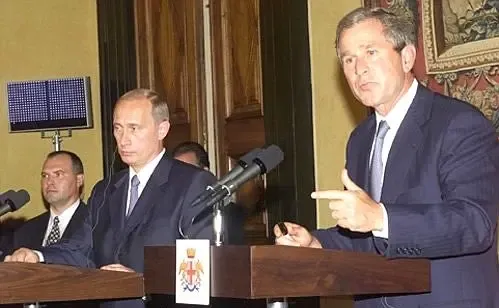Why is US President Trump Criticizing the UN Again?

Synopsis
Key Takeaways
- Trump's Criticism: US President Trump openly criticized the UN for its perceived failures.
- Financial Obligations: The US owes the UN approximately $3 billion.
- Withdrawal from Organizations: Trump has withdrawn the US from several UN bodies.
- Future Implications: The UN faces potential budget shortfalls due to US funding cuts.
- Historical Context: The US has a long history of fluctuating relations with the UN.
New Delhi, Sep 23 (NationPress) US President Donald Trump has targeted nearly every nation in recent headlines, but it was the United Nations that faced the most criticism during his address at the UN General Assembly in New York on Tuesday.
"In less than seven months, I have concluded seven 'unending' conflicts," he remarked, adding, "It is unfortunate that I had to undertake these actions instead of the United Nations fulfilling its role."
To complicate matters, the teleprompter malfunctioned at the start of his lengthy speech, and the elevator he used to access the assembly hall halted unexpectedly.
Fortunately, Trump and First Lady Melania Trump managed to avoid any mishaps, a detail he shared more as a complaint than a joke.
The international organization was criticized by Trump for various issues, including warfare, immigration crises, and climate change.
Throughout his presidency, Trump has been vocal against the United Nations and its affiliated agencies, withdrawing funding and membership from several bodies during both of his terms in office.
As reported, the UN claims the US owes approximately $3 billion.
A news analysis projected that Washington is anticipated to contribute 22 percent of that budget for 2025.
Earlier this year, the US reaffirmed its intention to withdraw from the UN Human Rights Council (UNHRC) and the UN Relief and Works Agency for Palestine Refugees (UNRWA), leading to an estimated funding reduction of $20 million and $364 million per year, respectively.
A presidential order signed by Trump on February 4 during his second term criticized the United Nations for deviating from its original mission, asserting that it acts against US interests while undermining its allies and promoting anti-Semitism.
The order noted that three UN organizations warrant closer examination: the UNHRC, UN Educational, Scientific and Cultural Organisation (UNESCO), and the UNRWA.
In July, the US announced its withdrawal from UNESCO, effective at the end of December 2026, citing anti-Israel bias and lack of reform, which resulted in cutting an annual budget of about $80 million.
Previously, the US withdrew from the World Health Organization (WHO) in 2020, blaming the organization's handling of the Covid-19 pandemic. A presidential order signed on January 20 this year stated, "the WHO continues to impose unjust financial demands on the United States, disproportionate to those of other nations. China, with a population of 1.4 billion, contributes nearly 90 percent less to the WHO, despite having 300 percent of the US population."
This led to another funding cut of approximately $130 million.
In 2023, the US contributed $13 billion to the UN system, of which three-quarters were voluntary donations, according to reports.
Two years later, it halted all payments to the global organization, starting in January, resulting in an estimated $3 billion in unpaid dues.
Forecasts indicate that the UN could face a $500 million shortfall by 2026, necessitating a 20 percent reduction in workforce across peacekeeping, humanitarian, and health departments.
It is essential to note that such decisions were not made solely during the current President's two terms.
The US has a history of entering and exiting various UN bodies, often influenced by changes in foreign policy and domestic priorities.
Withdrawals are typically based on claims of political bias, a belief that the organizations do not align with US national interests, or the perception that other nations are not contributing equitably.










